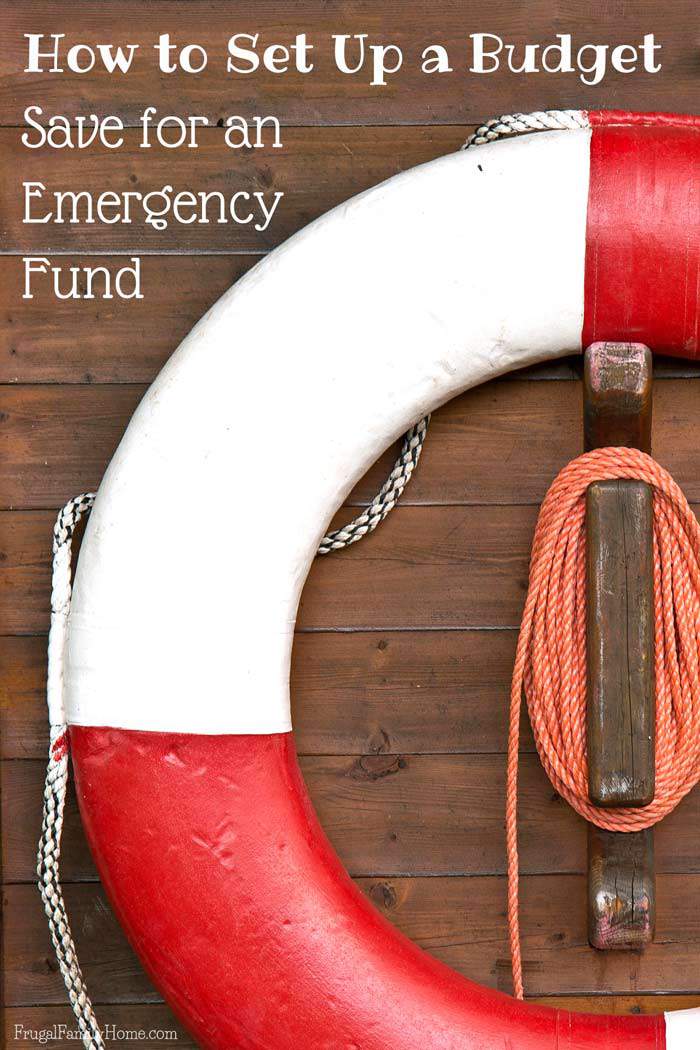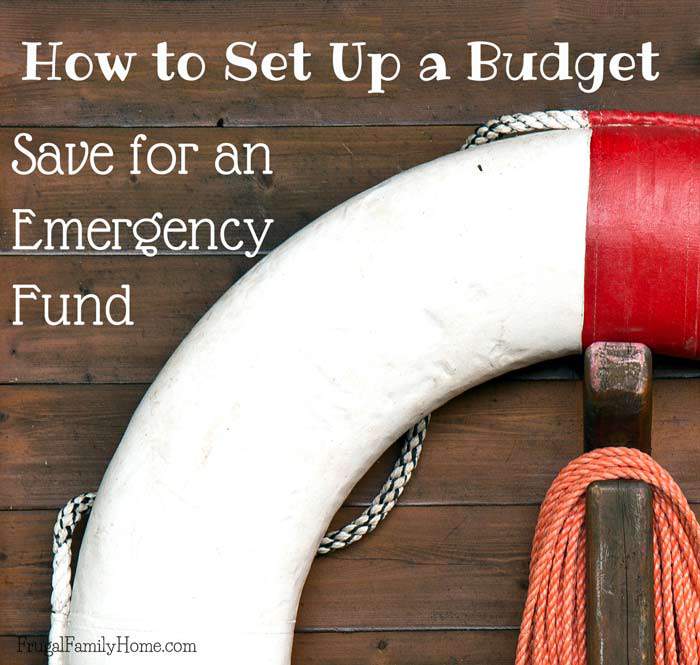How to set up a Budget..Emergency Fund

This brings us to the end of my how to set up a budget series. We’ve talked about the importance of a budget. How to determine your monthly bills. How to determine your monthly spending and setting up a spending budget for each month. How to make a written budget.
I shared some of my tips for sticking to a budget. Finally last time I shared how we use credit cards and making a plan to pay them off for good.
Now it’s time to plan ahead by having an Emergency Fund.
How to Handle Emergency Expenses
If you have been relying on credit cards for emergencies, and you want to get off credit cards altogether, you’re going to need an emergency fund.
The goal is to have 3-6 months of living expenses in your emergency fund, so if an emergency arises, you have the money needed to take care of it.
Determine Your Emergency Fund Amount and Start Saving
But saving that kind of money can take a while, so it’s best to start with a smaller amount while you are paying off debt.
Dave Ramsey suggests a thousand dollar emergency fund to start. That seems like a reasonable amount that most people can save up pretty quickly, just by living frugally for a few months.
But you have to decide what amount you feel you need to have in your emergency fund, while paying off your debt.
Once you know how much you want to keep for an emergency fund start to save for it, as quickly as you can. While you are saving your basic emergency fund just pay your minimums on your debt.
Pay Minimums on Debt While Saving for your Emergency Fund
Once you have the $1000 or whatever you decided would be best amount for you in your emergency fund, then start putting all your extra money towards paying off your debt.
Start with the smallest debt first and pay the minimums on all the rest.
By having the emergency fund in place you should not need to use a credit card. Just make sure that if you do use the emergency fund money, it is for an emergency.
It’s easy to get caught up in the moment and use an emergency fund for something that’s, well, not an emergency. Be sure to safeguard that fund.
Budget isn’t a Four Letter Word
If you’ve followed this budgeting series all the way through, I think you should be off to a good start to living within your means on a budget.
Budgeting doesn’t have to be something complex or restrictive. It’s a tool to use to help you reach the goals you have. Without setting goals for where your money will go, it will just go.
The money will leave for things that are not important in the long run. It will go towards things that are the here and now, the shiny items you can’t live without, in that moment.
Or your money can go towards something in the future. Something you have always longed for. It’s up to you to tell your money where to go, or it will just go.
A budget is a tool you can use to tell your money where it is going to go each and every month. You get to decide. When you take control, you can reach your financial goals.
And having an emergency fund is one way you can ensure you are ready when something unexpected happens. It’s a great step toward financial security. Once you have it and you can rely upon it, you’ll wonder how you ever did without an emergency fund.
Do you have an emergency fund?
Find more posts in the How to Set Up a Budget Series


These are great tips! You never know when you’ll have an emergency, so it’s good to be prepared by having a little pot of money set aside.